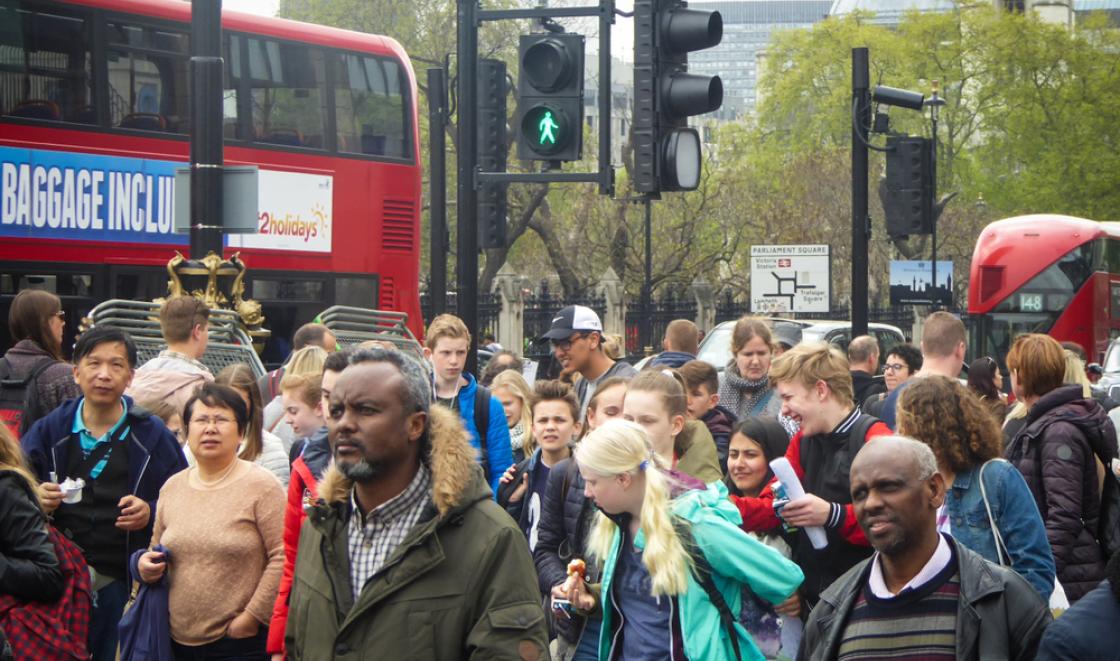One ARC across all of London
This opportunity brings fresh possibilities and challenges. London has many world-leading research universities and NHS bodies, often serving a far wider area, alongside 33 local authorities and a regional authority, and numerous other organisations and patient, carer and community networks – this sheer scale adds to the challenge of collaboration. With over 9 million people with varying needs and priorities, resources will not be enough to explore these all. In addition, it is uncertain how a new pan-London ARC would build on what has gone before and many researchers and other staff (some of whom draw partly on lived experience), public contributors, community and partners, feel uncertain about their roles and the future.
Despite the challenges, I can anticipate various benefits of working together across London. As with all NIHR-funded programmes, strong involvement and research inclusion will be expected. I can see a pan-London approach potentially strengthening diverse involvement. I have learnt a lot over the years from, and alongside, fellow-involvement staff and key public contributors in other London ARCs. Bringing together some of the skills, knowledge and insights could be fruitful indeed, even if not all the ideas we originally had will be put into practice, amid shifts in personnel and tighter resources. There has been some formal joint work before and Active Involvement in Research this year will move things forward in this regard.
More broadly, I have supported involvement in health and care commissioning, delivery or research in all three areas across London at some point, and been involved (and a patient or carer) in most and carried the lessons with me. Quite a few other ARC staff and contributors have also been active across more than one patch. Others too may gain if it is easier to share insights on prevention and service improvement, and triumphs and cautionary tales in involvement, across London.
And while it is important not to lose a sense of the local, and some health and care-related groups are based in a handful of boroughs or just one, other groups have a wider geographical reach. Diverse communities do not always socialise, organise and communicate in ways which fit neat boundaries. If a service user or carer network or voluntary and community sector organisation is London-wide - and I have been employed by or volunteered for such organisations in the past - it may be more convenient to work with a London ARC.
Improving wellbeing and reducing London’s health gap
There are also health and care challenges facing London overall, in which diverse researchers and lived experience contributors together have more chance of identifying what needs to change, how this might be done and putting this into practice. The city is a place of contrasts. Cutting-edge treatment and excellent care can be found side-by-side with overstretched services and staff. Huge prosperity co-exists with stark deprivation and discrimination, damaging health and undermining access to appropriate support.
And some approaches to “fixing” or understanding these problems are making matters worse. One of these is tighter gatekeeping, including barriers to asking for treatment and care, as well as accessing services. This may reduce pressure on services in the short term but, when people do require support, this may be at far higher levels, so it is often not even cost-effective financially.
Another, sometimes overlapping, approach, is to treat marginalised groups as competing, seen recently in the prejudice stoked against minorities. People from refugee and ethnic minority communities are facing growing hostility, and sometimes physical attack, because of supposedly taking resources from the majority or being accused of being dangerous. The situation of people who are disabled, and/or trans, lesbian, gay or bisexual, is also increasingly insecure.
The recent march and rally in London, organised and addressed by far-right leaders, though many who took part were not themselves extremists, drew huge numbers. This went past St Thomas’ Hospital, run by one of ARC South London’s member trusts. Some marchers chanted vitriolic slogans, and a number broke into the grounds. One of the handful of white members of an NHS staff team who were on duty that day later wrote of the vital work of colleagues from minority communities and their fear, which led some to stay there overnight, while violence erupted elsewhere. Elsewhere in London too, health and social care staff from targeted communities were on duty that day, ready to care for anyone in need regardless of backgrounds.
Certainly, the costs of different kinds of provision for those recently arrived should not be disproportionately borne by already disadvantaged communities, especially in a country with such great wealth. But people who are – or from communities largely made up of – migrants, immigrants and refugees play a key role in health and care services, prevention and many other areas vital to public life and society. Sizeable numbers of researchers and support staff doing important work come from such backgrounds. And when diverse people care for and respect one another and work together, public health can be greatly improved. There is extensive evidence of this vital contribution to the public’s health and wellbeing, which is jeopardised by this surge of prejudice and antagonism.
Applied research, especially when carried out in partnership with underserved sections of the population, is vitally important at this time. What could be learnt through the work of any future pan-London ARC, will be relevant to many other parts of the UK. And, in turn, we can continue to learn from research and involvement elsewhere. In a world, country and city where there is so much preventable ill health and inadequate care, as well as examples of the opposite, true partnership in research has much to offer.
Find out more
Join our Active Involvement in Research events in-person on 28 October or online on 11 November.
